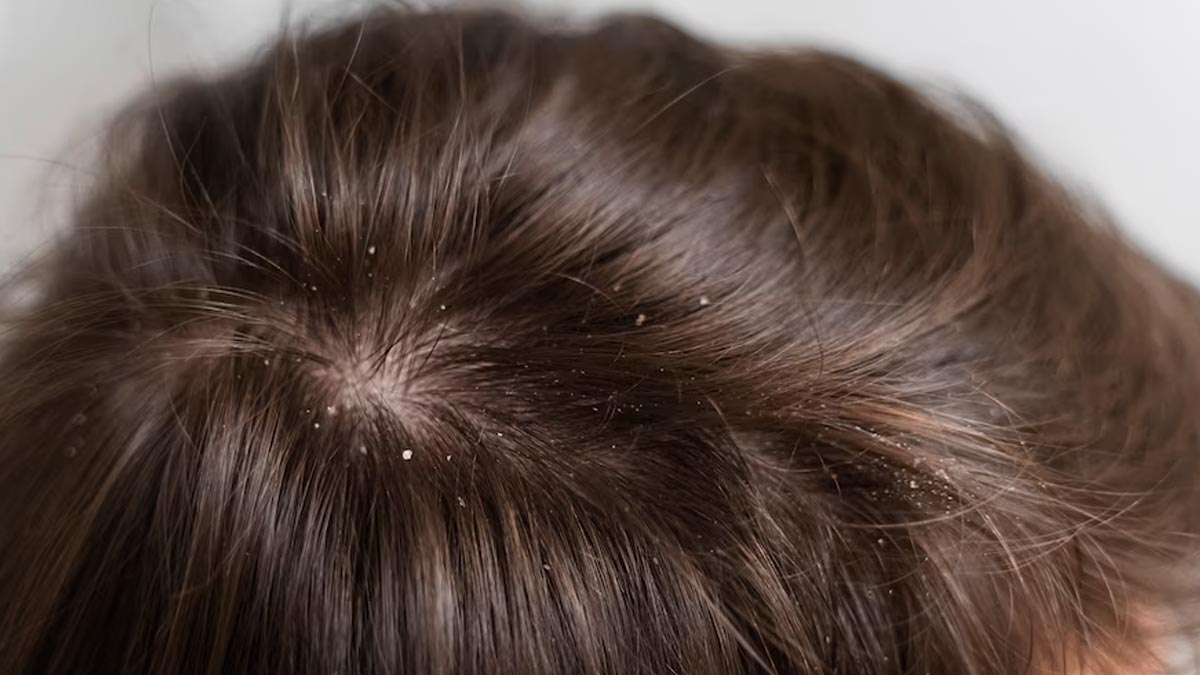
Dandruff is an often embarrassing condition, affects countless individuals worldwide. Characterised by flaky, itchy, and sometimes oily scalp, dandruff can take a toll on hair health and self-confidence. But what exactly causes dandruff, and how does it harm your hair? Let’s explore its impact on hair health, and provide you with effective remedies to bid farewell to those unwanted flakes.
Table of Content:-
The Science Behind Dandruff
“Dandruff is primarily caused by an overgrowth of a yeast-like fungus called Malassezia. This fungus is naturally present on the scalp, but an excessive proliferation can lead to dandruff. Malassezia feeds on the natural oils produced by the scalp, resulting in an increase in skin cell turnover”, said Dr SK Gupta, Dermatologist, DMCH, Darbhanga. As a result, dead skin cells accumulate on the scalp's surface, leading to flaking and itching.
How Dandruff Harms Hair Health
Itchy and Inflamed Scalp
The constant itching and irritation caused by dandruff can lead to scratching, which damages the scalp and weakens the hair follicles. This can result in hair breakage and hair loss.

Oil Imbalance
Dandruff can disrupt the balance of natural oils on the scalp. An oily scalp is a breeding ground for dandruff-causing fungus, and excessive dryness can exacerbate flaking.
Weakened Hair
The inflammation caused by dandruff can weaken the hair shafts, making them more prone to damage and breakage.
Remedies to Get Rid of Dandruff
Anti-Dandruff Shampoos
According to the American Academy of Dermatology, afflicted parts of the body should be washed with pyrithione zinc soaps. These ingredients target the fungus and help reduce dandruff.
Tea Tree Oil
Known for its antifungal and antibacterial properties, tea tree oil can be added to your shampoo or diluted with a carrier oil and massaged onto the scalp.
Aloe Vera Gel
Aloe vera has soothing properties that can alleviate itching and reduce inflammation. Apply fresh aloe vera gel directly to the scalp.

Maintain Good Hygiene
Regularly wash your hair and scalp to keep them clean and free from excess oils and dead skin cells.
Balanced Diet
A diet rich in vitamins, minerals, and omega-3 fatty acids can promote a healthy scalp and hair.
Manage Stress
Stress can exacerbate dandruff. Practice stress-reduction techniques such as meditation, yoga, or deep breathing.
Understanding the science behind dandruff and its impact on hair health is the first step toward effective management. While dandruff can be frustrating, the good news is that there are numerous remedies available to help you regain a healthy scalp and lustrous hair.
By choosing the right products, incorporating natural remedies, maintaining good hygiene, and leading a balanced lifestyle, you can bid farewell to dandruff and embrace a confident, flake-free you.
Also watch this video
How we keep this article up to date:
We work with experts and keep a close eye on the latest in health and wellness. Whenever there is a new research or helpful information, we update our articles with accurate and useful advice.
Current Version
